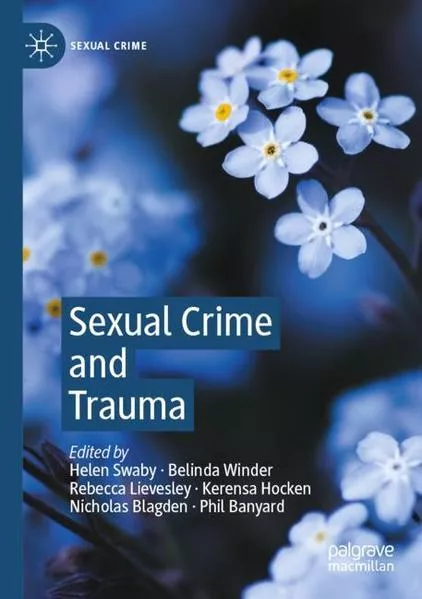
- Publikationen ca: 3
- Fragen & Antworten
Helen Swaby
Helen Swaby is Lecturer in Counselling at Bishop Grosseteste University, UK. She is a qualified integrative psychotherapist and has a background in forensic psychology research.Belinda Winder is Professor of Forensic Psychology and Head of the Sexual Offences, Crime and Misconduct Research Unit at Nottingham Trent University, UK. She is a co-founder of the Safer Living Foundation charity. Rebecca Lievesley is Senior Lecturer in Psychology at Nottingham Trent University, UK and has conducted research within the criminal justice system for many years. Kerensa Hocken is a registered forensic psychologist at HMPPS Whatton, UK. She has oversight for the assessment and treatment of people in prison for sexual offending in the Midlands region.Nicholas Blagden is Associate Professor and co-leads the Sexual Offences, Crime and Misconduct Research Unit at Nottingham Trent University, UK. He is a co-founder of the Safer Living Foundation charity. Phil Banyard is Head of Psychology at Nottingham Trent University, UK. He was honoured with the British Psychological Society’s Award for Distinguished Contributions to Psychology Education.
Sexual Crime and Trauma
This book explores the growing understanding and evidence base for the role of trauma in sexual offending. It represents a paradigm shift, in which trauma is becoming an important risk factor to be considered in the treatment of individuals convicted of sexual crime.
Sexual Crime and Trauma
This book explores the growing understanding and evidence base for the role of trauma in sexual offending. It represents a paradigm shift, in which trauma is becoming an important risk factor to be considered in the treatment of individuals convicted of sexual crime.
Sexual Crime and Trauma
This book explores the growing understanding and evidence base for the role of trauma in sexual offending. It represents a paradigm shift, in which trauma is becoming an important risk factor to be considered in the treatment of individuals convicted of sexual crime.


